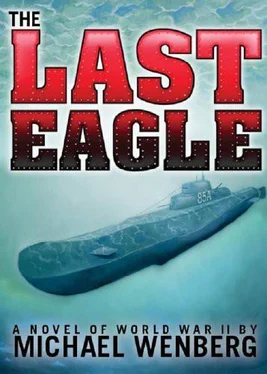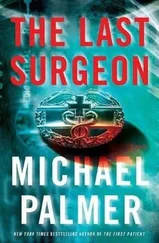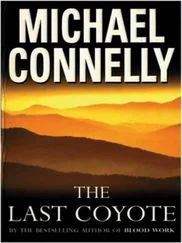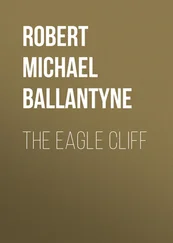He finished his cigarette, reached for his intercom button. “Bring me some hot peppermint tea,” he said, “and a little cognac.”
“Yes, sir,” came the faint response.
Peppermint to settle his stomach, cognac to sharpen the mind. Already late, he had a stack of reports to read. It would be early morning before he arrived home. And required back again a few hours later.
As he waited for his tea, he let his mind wander. If he were the Eagle’s captain, what next?
His wife knew. No one else. Easy enough to understand why: they were never around when he woke in the middle night, moaning.
“That dream again, Winston?” she said, flicking on the bedside light.
He swung his legs over the edge of the bed and stood. In oversize pajamas, he looked like small child, not the soon-to-be leader of the fight against Nazi Germany.
“Gallipoli wasn’t your fault,” she said, trying to soothe him. The reports cleared you.”
“And they were poppycock,” he sighed. “Can’t sleep anyway. I’ll do some work.”
“Oh, Winston.”
“I’ll be all right,” he said. His boxer’s face softened. He kissed her gently on the cheek. “I’m sorry I woke you.”
He pulled on his robe and shuffled out of the room. Instead of heading to his office, he went to his painting studio. Half-finished watercolor paintings lay scattered around the room. Interrupted by that damn Hitler, Churchill thought. He wondered when, if ever, he would get the chance to finish them. When he peered into the future, it was bleak at best, dominated by the struggle that he knew would soon engulf the entire world. He had been right about Hitler when no one was listening, when members of the House of Commons thought he was a one-note fool: Hitler this, Nazi threat that.
Churchill poured himself a few fingers of Scotch, settled into the wicker chair in front of his easel, held the glass up in the light, staring into the rich liquid as if it were a crystal ball.
Of course, she was wrong. It had been his fault. He knew it, even if the reports had glossed over his culpability. Men had been butchered because of his mistake, his arrogance. He shook his head, took a drink, let the rich liquid trickle down his throat, warm his belly. He had vowed to never let it happen again. And yet, how could he prevent it? Already he was playing with men and ships like they were pieces on a board game. They were not. Others might forget, but he wouldn’t let himself. Even so, he was bound to make mistakes, and men would die as a result of them. And part of him would die with them. And that too was how it should be. If he wasn’t changed and scarred by the consequences of his decisions, then he was a monster, no different than the raging lunatic who had bewitched the German people.
It was the Polish submarine Eagle that had stirred up the memories. She was like a cat. How many lives had she already used up? British Intelligence had picked up messages from the Russians and Finns that the Eagle had run aground. He had waited throughout the day for confirmation of her demise, but it never came, and then a message just after dinner with the PM: she had escaped and was being pursued.
Of course, the Eagle had little in common with the fiasco at Gallipoli. And yet, it shared similar themes. A small band of men—and one American woman, if the accounts were correct—fighting against overwhelming odds. What was it about such events that captured the imagination? Was it the heady mix of hope, heroism, and, yes, fear? The Eagle’s escape dominated the free newspapers in Europe as well as the media in Germany. It was threatening to eclipse reports of Poland’s near collapse and driving Hitler into a rage. And still the submarine’s crew did the unexpected. Instead of attempting escape, they had attacked, sinking a German freighter loaded with fuel oil off Gdansk, and now this, going after the Russians. The chuckle came unbidden, rough and ragged like a worn-out engine, but chuckle nonetheless. Part of him wished the crew would port in Sweden, joining three other Polish vessels interned there. Survive and live to fight another day. They had already done enough. And yet another part of him, the one still inspired by childhood tales of King Arthur and his knights of the Round Table, wished them to continue the fight. What had the poet written: “To strive, to seek, to fight, and not to yield?”
Silently, he vowed. If the Eagle survived and made it to British-controlled waters, he would be one of the first to greet her and her captain. Maybe some of the Eagle’s magic could rub off. Churchill hoped it was so. He lifted his glass. “Godspeed, Eagle ,” he growled into the air.
Underwater, the Eagle was powered by electric motors using energy stored in her gigantic batteries tucked away in two places under her decks. And like every submarine of the late 1930s, she cruised at a tortoiselike speed of two or three knots. Of course, in a panic, she could accelerate to 9 knots, but that was still hardly an impressive speed. And if she remained at that pace for very long, she would quickly exhaust her batteries, forcing her back to the surface where she would need to remain until they were recharged by her diesel engines.
At the moment, Stefan was pondering these engineering constraints as he sat on his bunk, eating an apple. He was wearing a soggy shirt open at the collar, damp pants and salt-stained boots. His dark beard was unkempt, as was his hair, their dark color matched by the circles of fatigue—almost bruises—beneath each eye. Cooky had found the apple rolling in filthy water in a corner of the engine room when the entire crew had been dashing back forth like a herd of elephants. It was bruised, and the skin tasted like everything else, diesel. Stefan didn’t care. The flesh inside was firm and moist, its apple scent headier than any woman’s perfume. He was convinced it was the best apple he had ever eaten.
Stefan had often dreamed of a time when submarines would be more like the vessel imagined by Jules Verne in Twenty-Thousand Leagues Under the Sea . He had read the book many times—and hadbeen enchanted by it. It remained one of his all-time favorites, helped encourage him to pursue a career in Navy submarines when it came time to leave fishing. How much easier and safer if they could simply stay submerged for weeks on end at depths beyond the reach of their enemies? What a weapon a submarine would be then.
Faintly, Stefan could still hear the whoosh-whoosh sound of screws from the ships on the surface, prowling now in the distance. The Eagle had been submerged for four hours, creeping along 120 meters below the surface as destroyers, probably Russian, combed the waters overhead, flinging set after set of depth charges into the water in hopes of either destroying them or driving them to the topside.
Stefan listened to distant explosions, the Eagle’s hull creaking in response, as they began yet another run. Persistent devils, he thought. BOOM. BOOM. BOOM. Four depth charges per rack, two racks per side, twenty-four explosions in all, their sounds gradually diminishing as the destroyer and submarine moved in opposite directions. And then reload, perhaps reset the timers so the cans sank deeper or shallower before they detonated, and do it all again. It was monotonous as a factory assembly line. And just as effective.
Once the Eagle submerged, Stefan scampered forward once again to assess the damage to the bow. They were lucky. Only minor leaking. But there was one other problem that might have unforeseen consequences. Something was wrong with theEagle’s forward torpedo hatches. They wouldn’t open, the skin of iron that coated the bow twisted and dented just enough to keep them closed. Their one remaining forward torpedo was now useless.
Читать дальше












